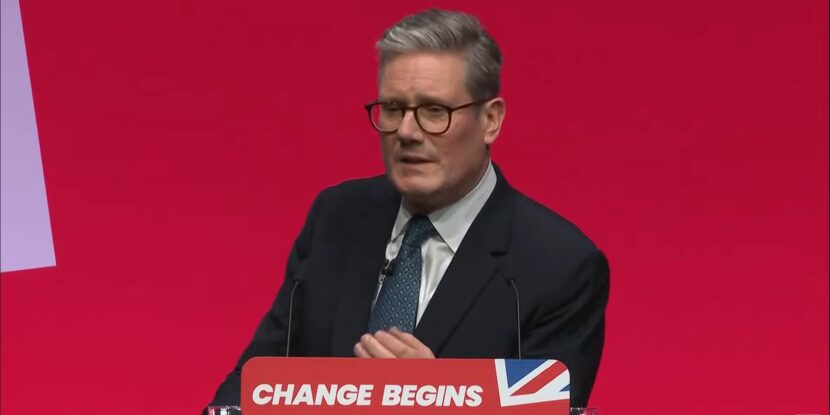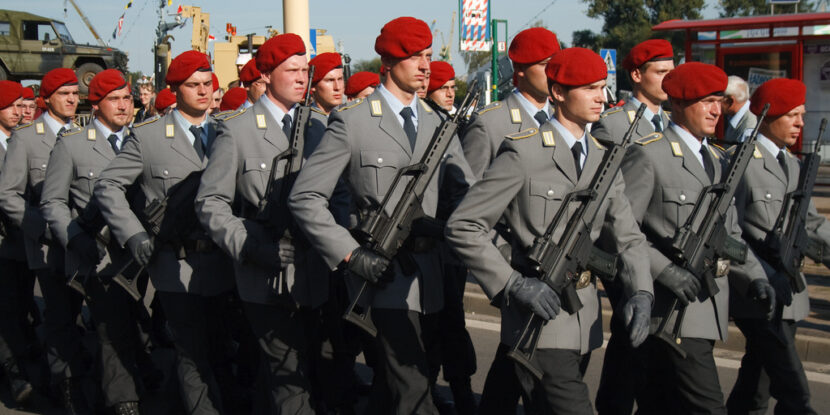
PULSE POINTS:
❓What Happened: Prime Minister Sir Keir Starmer is reportedly planning a so-called “youth mobility” scheme with the European Union (EU), partially undoing the post-Brexit termination of Free Movement immigration.
👥 Who’s Involved: Keir Starmer, European Commission President Ursula von der Leyen, Cabinet Office Minister Nick Thomas-Symonds, and senior government sources.
Your free, daily feed from The National Pulse.
📍 Where & When: Announcement expected at a summit on Monday; negotiations ongoing between Britain and the EU.
💬 Key Quote: “The Brexiteers will cry betrayal and the Remainers will demand rejoin but it’ll be superb,” a senior government source claimed.
⚠️ Impact: The deal aims to “reset” UK-EU relations, but easing immigration from the European Union will reinforce domestic fears that Starmer, who campaigned against Brexit, intends to reverse it piece by piece, and undermines his recent moves to present himself as an immigration hawk compared to the formerly governing Conservatives.
IN FULL:
Prime Minister Sir Keir Starmer is reportedly preparing to announce a so-called “youth mobility” scheme with the European Union (EU) as part of broader efforts to “reset” relations with the bloc post-Brexit. The scheme would allow individuals aged 18 to 30 to live and work across participating countries for two years, potentially reactivating much of the pre-Brexit inflow of cheap European migrant labor.
“The Brexiteers will cry betrayal and the Remainers will demand rejoin, but it’ll be superb,” a senior official said of the mobility scheme.
The scheme comes as Starmer is claiming he is moving to reduce legal mass migration, which exploded under Conservative former prime ministers Boris Johnson and Rishi Sunak, to prevent Britain from becoming an “island of strangers.” In reality, Starmer is likely only posing as a migration hawk to blunt the rise of Nigel Farage’s Reform Party, which owes much of its growing popularity to its strong stance against mass migration and is now pulling ahead of Starmer’s Labour Party as well as the Conservatives.
“Only Reform UK will freeze immigration, deport illegal migrants and regain control of our borders,” Farage commented on social media on Wednesday, referencing the increase in illegal immigration under Labour.
Only Reform UK will freeze immigration, deport illegal migrants and regain control of our borders.
— Nigel Farage MP (@Nigel_Farage) May 14, 2025

PULSE POINTS:
❓What Happened: German Chancellor (Prime Minister) Friedrich Merz vowed to build “the strongest conventional army in Europe,” responding to President Donald J. Trump’s demands for America’s NATO allies to boost defense spending.
👥 Who’s Involved: Chancellor Merz, President Trump, German Defense Minister Boris Pistorius, and former Chancellor Olaf Scholz.
Your free, daily feed from The National Pulse.
📍Where & When: Bundestag, Berlin, on Wednesday, May 14, 2025.
💬 Key Quote: “Strengthening the Bundeswehr is our top priority,” Merz declared. “The German government will provide all the financial resources the Bundeswehr needs to become Europe’s strongest conventional army.”
⚠️Impact: Trump’s pressure is reshaping NATO, pushing Germany to step up militarily. However, this may raise alarm bells in Russia and other countries that have historically fallen victim to German aggression.
IN FULL:
President Donald J. Trump’s relentless push for European NATO allies to pull their weight is yielding results, as German Chancellor Friedrich Merz pledged on May 14, 2025, to transform the Bundeswehr (Federal Defense Forces) into “the strongest conventional army in Europe.” Speaking to the Bundestag (federal legislature) in his first major address since taking office, Merz credited Trump’s blunt demands for shaking Germany out of its post-Cold War complacency.
“This is appropriate for Europe’s most populous and economically powerful country,” Merz told lawmakers, vowing to provide “all financial means necessary” to overhaul the long-underfunded Bundeswehr. “Our friends and partners also expect this from us. Indeed, they practically demand it.” This nod to Trump, who has questioned Washington’s NATO commitment unless allies such as Germany spend more, highlights the America First leader’s influence in forcing Europe to confront its security shortcomings.
Germany’s military, mocked for faulty equipment like grounded helicopters and inaccurate rifles, has lagged since the Cold War, relying heavily on U.S. protection—while enriching adversary states like Russia through substantial energy deals. Merz’s pledge builds on former Chancellor Olaf Scholz’s 2022 allocation of €100 billion ($112 billion) to meet NATO’s two percent of GDP defense spending target, but parliamentary commissioner Eva Hoegl recently warned the Bundeswehr still has “too little of everything.”
Merz’s “bazooka” funding plan, worth hundreds of billions, aims to reverse this, with orders for German-built submarines already in motion—though delivery will take years.
Merz claims that Russia’s ambitions extend beyond Ukraine, stating, “Anyone who seriously believes that Russia would be satisfied with a victory over Ukraine… is mistaken.”
“Strength deters aggressors, while weakness invites aggression,” he said, reaffirming support for Ukraine but clarifying Germany’s non-combatant stance: “[W]e are not a party to war, and we don’t want to become one.”
To rebuild troop strength, Merz announced a “new, attractive voluntary military service,” though Defense Minister Boris Pistorius hinted conscription could return if volunteer numbers fall short. “We will initially rely on voluntary participation,” Pistorius said, stressing “initially” as a deliberate caveat.
show less

 1 month ago
3
1 month ago
3








 English (US) ·
English (US) ·